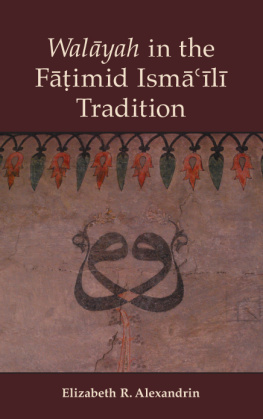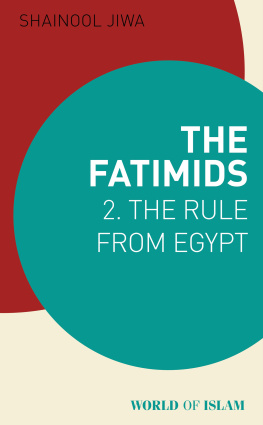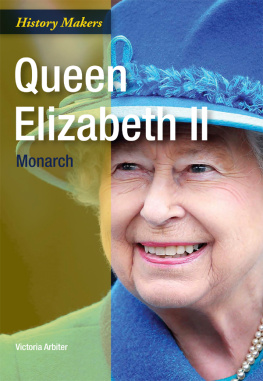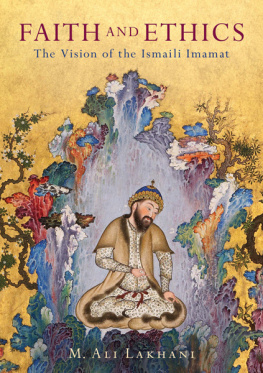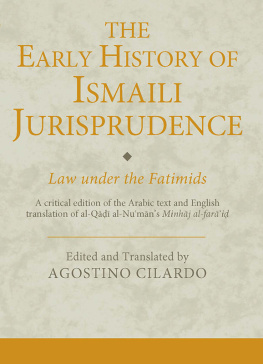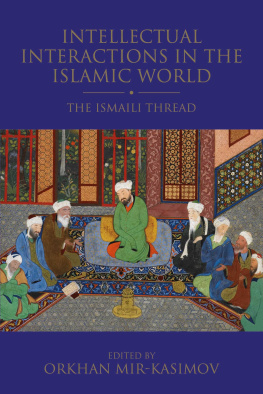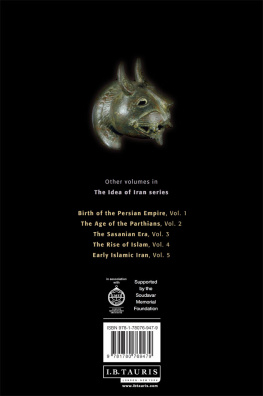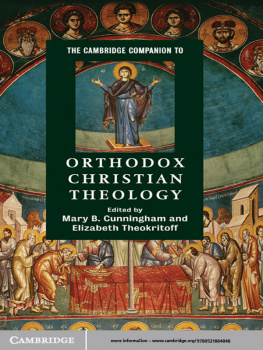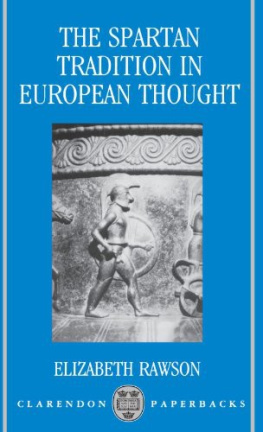Walyah in the
Fimid Isml Tradition
Walyah in the Fimid Isml Tradition
Elizabeth R. Alexandrin
Cover image taken by the author at the Sulejmanija mosque in Travnik, Bosnia.
Published by State University of New York Press, Albany
2017 State University of New York
All rights reserved
Printed in the United States of America
No part of this book may be used or reproduced in any manner whatsoever without written permission. No part of this book may be stored in a retrieval system or transmitted in any form or by any means including electronic, electrostatic, magnetic tape, mechanical, photocopying, recording, or otherwise without the prior permission in writing of the publisher.
For information, contact State University of New York Press, Albany, NY
www.sunypress.edu
Production, Diane Ganeles
Marketing, Anne M. Valentine
Library of Congress Cataloging-in-Publication Data
Names: Alexandrin, Elizabeth R., author.
Title: Walayah in the Fatimid Ismaili tradition / by Elizabeth R. Alexandrin.
Description: Albany, NY : State University of New York Press, 2017. | Includes bibliographical references and index.
Identifiers: LCCN 2016044035 (print) | LCCN 2017002609 (ebook) | ISBN 9781438466279 (hardcover : alk. paper) | ISBN 9781438466286 (e-book)
Subjects: LCSH Muayyad f al-Dn Hibat Allh ibn Ms:, 1077 or 1078. | ShahDoctrinesSources. | FatimitesIntellectual life. | EgyptHistory6401250.
Classification: LCC BP194 .A339 2017 (print) | LCC BP194 (ebook) | DDC 297.8/22092dc23
LC record available at https://lccn.loc.gov/2016044035
10 9 8 7 6 5 4 3 2 1
Contents
Acknowledgments
This book is based in part on my PhD dissertation (Institute of Islamic Studies, McGill University). I would like to thank Professor Emeritus Hermann A. Landolt for his patient and exemplary guidance during my PhD program. During researching and writing my dissertation, the Institute of Ismaili Studies (London, England) provided many resources and much support, including access to the manuscripts that were indispensable for this study as well as a Dissertation Writing Scholarship.
Michael Brett, Tahera Qutbuddin, and Abdeali Qutbuddin provided encouragement and direction at different points during my research. Charles Melville and Paula Saunders read through early drafts of Todd Lawson, Sajjad Rizvi, Ahab Bdaiwi, Francisco Luis, N. Wahid Azal, Laury Silvers, and Khalil Andani, for sparking new ways of thinking about scholarship on the study of Islam and helping with sources when they were just out of reach in Manitoba.
Conversations, discussion, and dialogue with my colleagues and friends at the University of Manitoba, in the Department of Religion, and at St. Johns College, have shaped and enriched this book in different ways. As well, I would like to thank my students in the Winter 2015 Approaches to the Qurn course. Their wonderful engagement and interest in medieval Isml and Sufi commentaries on the Qurn coincided with the last stage of writing this book. It remains a most treasured and memorable experience. A special thanks also goes to the Document Delivery staff at Dafoe Library, University of Manitoba, for completing many requests for books and articles in Arabic and Persian.
I would like to show my gratitude to the editors and editorial staff at SUNY Press for their time, consideration, and assistance. The suggestions and recommendations of reviewers A, B, and C contributed to refining the central arguments of this book. I would like to thank Valerie Joy Turner for her careful editorial assistance and work on the indexes for this book. All the shortcomings of this book, of course, are my own.
Last but not least, I have always been so fortunate to have the love of my father Glen Alexandrin and stepmother Wendi Ding Alexandrin. Over the years, they have shown in so many ways their strong support of my studies and research. I thank them deeply for their confidence and belief, and it is to them that I dedicate this book.
17 April 2017
Winnipeg, Manitoba
Transliteration
In the transliteration of Arabic and Persian, the present work follows the system of transliteration established by the International Journal of Middle East Studies.
| Letters | Transliteration |
| a |
| b |
| t |
| th |
| j |
| kh |
| d |
| dh |
| r |
| z |
| s |
| sh |
| gh |
| f |
| q |
| l |
| m |
| n |
| / | h, ah, at (in construct, or when case endings are indicated) |
| w |
| y |
Additional notes:
1. Transliteration of vowels and diphthongs: Transliteration of vowels and diphthongs follow the system of transliteration established by the International Journal of Middle East Studies, with some simplifications, as noted earlier. In the case of all book titles, including those in Persian, the same transliteration of vowels and diphthongs will be used.
2. Translations and passages cited from manuscripts: All of the translations of the passages from primary sources in Arabic and Persian, unless indicated otherwise with a reference, are my translations. Throughout this book, variant readings are indicated in endnotes. As well, all the verses cited from the Qurn throughout this book are from the Ysuf Al translation.
3. In terms of passages cited from manuscripts, [ ] indicates an alternate reading of a passage in the manuscript, / / a passage that is not clearly legible in the manuscript, and part of a passage not fully quoted from the manuscript. Any passage from a manuscript that is presented in this monograph reflects the paleography and spelling of the original text in the manuscript. When scribal errors do occur in the manuscript, they will be indicated after the passage by [sic].
Introduction
At a once and future time, the sphere of walyah draws to a close on the side of created being. The final juncture of walyah, or the end of the friends of God, may signal not only the end of the world but also the fulfillment of prophetic revelation and religion.
This book focuses on the 11th-century Fimid Isml chief missionary (dal-dut), al-Muayyad f al-Dn Ab Nar Hibat Allh al-Shrz (d. ca. 470 AH/1078 CE). This work contributes to Western scholarly literature on the question of how messianic expectations frame the sources and resources of authority and religio-political sovereignty. My primary research question emerged from reading primary sources and secondary literature for a graduate seminar on the mystical traditions of Islam at the Institute of Islamic Studies, McGill University, which was a seminar on the history of Sufism and Sh ism from the 10th to the 14th century. The many unvoiced reasons behind the controversies over the concepts of divine authority (walyah) and the seal of Gods friends (khtim al-awliyAllh) puzzled me. From an authorial perspective, those who were teaching and writing about the idea of divine authority and a seal of Gods friends in certain intellectual circles often resisted an exacting discussion of these concepts or refrained from even mentioning them by name.
However, al-Muayyads major prose work,


